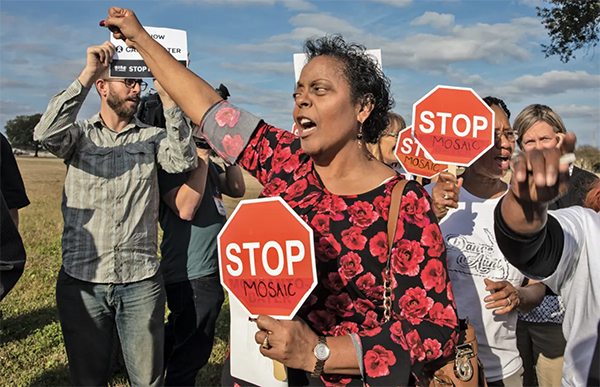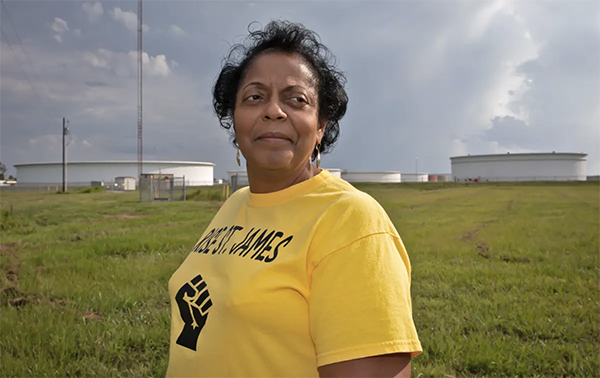Below are excerpts from an article by Sharon Kelly that was originally published for DeSmog.com and can be viewed in full here.
Sharon Lavigne of St. James Parish, Louisiana, is one of six winners of the 2021 Goldman Environmental Prize, in recognition of her work within the “Cancer Alley” community where she was born and now, at 68 years old, continues to mobilize for environmental justice.
Lavigne, who founded the community group RISE St. James in 2018, worked for nearly 40 years as a special education teacher at St. James High School before being drawn into the fight against heavy industry — and its public health and environmental impacts — in her home town alongside the Mississippi River.
The Goldman prize, sometimes called the “Green Nobel Prize,” is given annually to six environmental advocates, one from each of the world’s six inhabited continental regions. The prize recognizes “grassroots environmental heroes” — including many whose work puts them at severe risk of retaliation — who have helped to create concrete changes, including protecting endangered ecosystems, combatting destructive industrial projects, and promoting environmental justice.

Photo / © Julie Dermansky
. . . Lavigne is not the first Goldman prize winner to hail from the notorious “Cancer Alley” in Louisiana. In 2004, Margie Richard of Norco, Louisiana, co-founder of the environmental watchdog Louisiana Bucket Brigade, was the first Black American to be awarded the Goldman Prize for her efforts to force Shell to pay to relocate residents living nearest the company’s heavily polluting Norco chemical plant.
Lavigne got her start in the environmental movement after attending a school board meeting in 2015, where she met members of a local organization called H.E.L.P. (Humanitarian Enterprise of Loving People) and started learning more about the pollution problems in St. James Parish.
“With more than 20,000 residents, the parish has among the highest concentrations of toxic chemicals in the country,” the Goldman Environmental Foundation wrote, describing Lavigne’s home. “Nighttime chemical releases causing toxic ‘yellow rain’ are common,” it added, describing a yellow fog that locals have said often leaves behind dead birds on their lawns. Parts of the region suffer from unusually high cancer risks from polluted air that, according to the United Nations, will worsen if new petrochemical plants are built.
. . . Lavigne founded RISE St. James in October 2018, splitting off from other organizers who believed that it would be impossible to defeat a major petrochemical project, concluding that it might be wisest to focus on helping people relocate. “The fight is in me,” Lavigne told DeSmog’s Julie Dermansky, who profiled Lavigne’s work in January 2020, as she looked back at a September 2018 direct action and march through the Burton Lane neighborhood of St. James with her family and neighbors. “I can’t explain the shift, but I knew I was ready to take the lead.”
. . . Lavigne’s advice for others living near fossil fuel projects is simple: “Tell them to be vigilant of what’s going on in their community,” she said. “If they see stuff that’s going on that’s not right, speak up. Don’t just sit around and say somebody else should do it, you go out and do it. Cause I did that.”
Sharon Kelly is an attorney and freelance writer based in Philadelphia. She has reported for The New York Times, The Guardian, The Nation, National Wildlife, Earth Island Journal, and a variety of other publications. Prior to beginning freelance writing, she worked as a law clerk for the ACLU.

